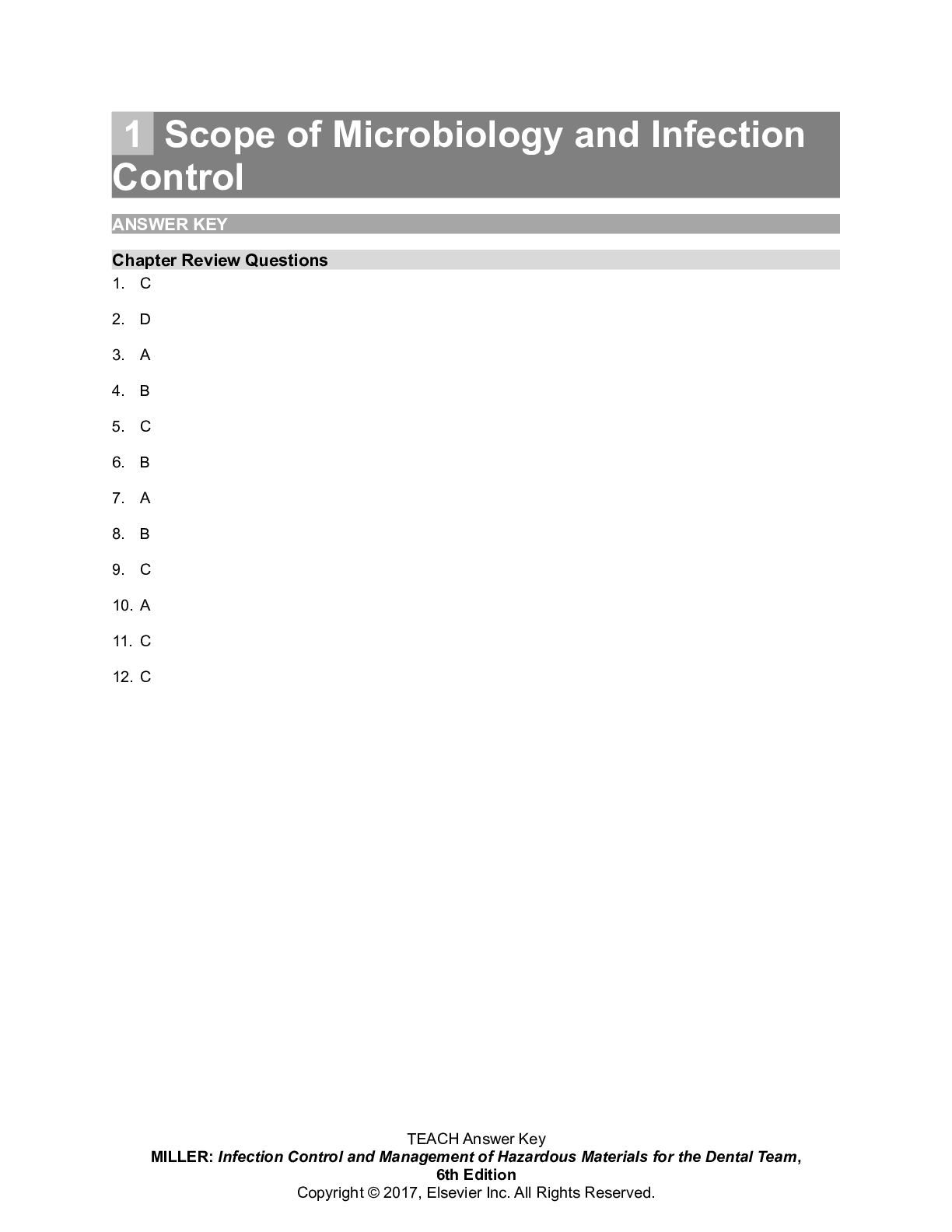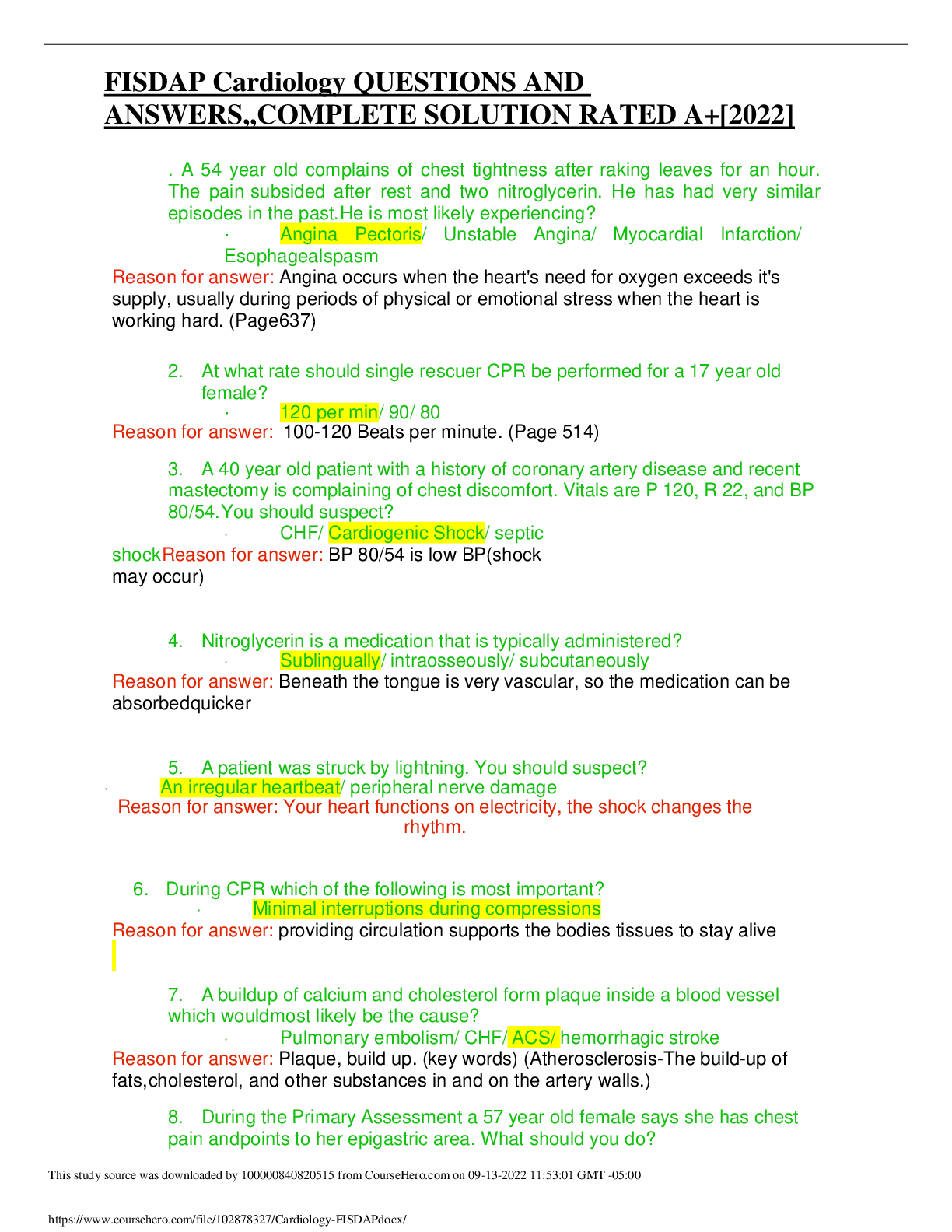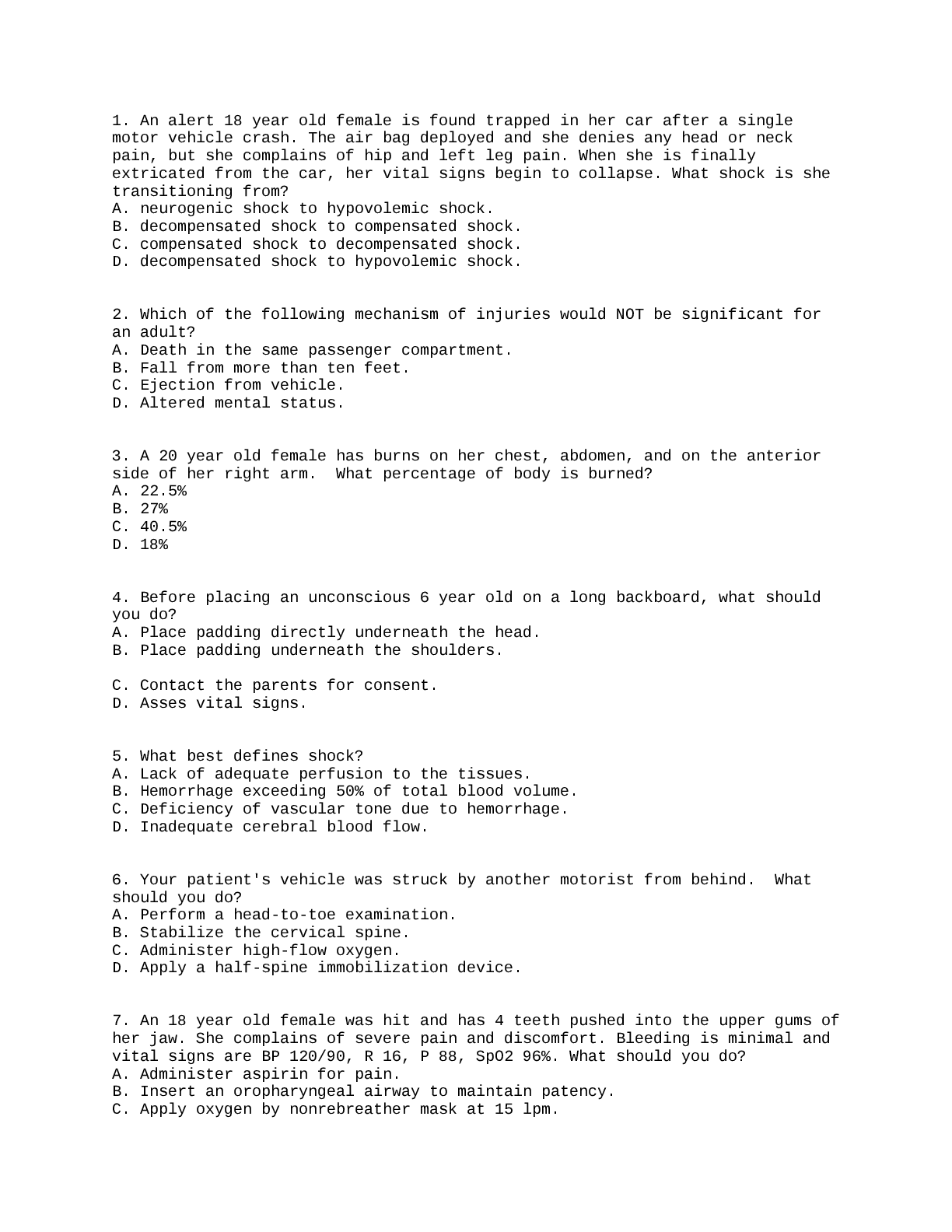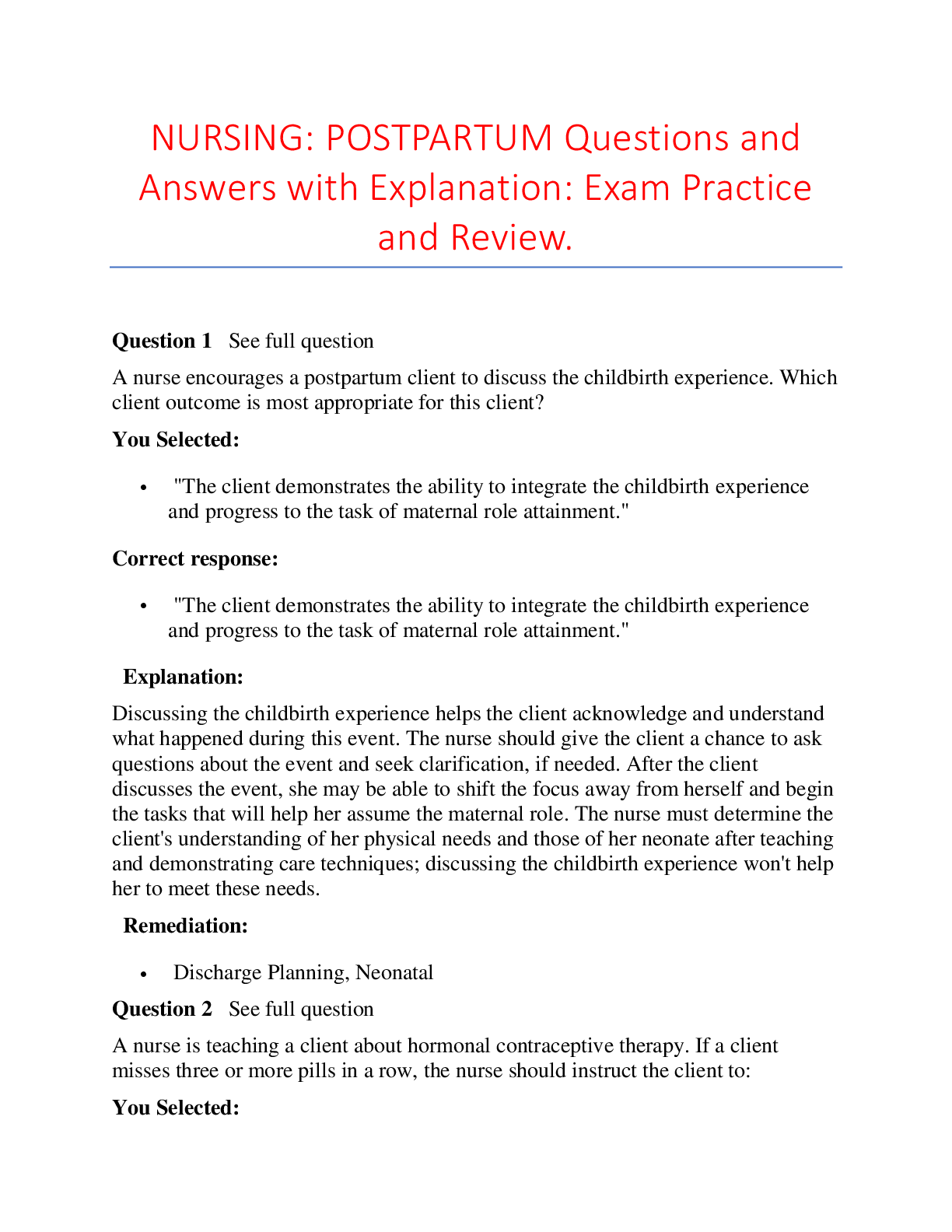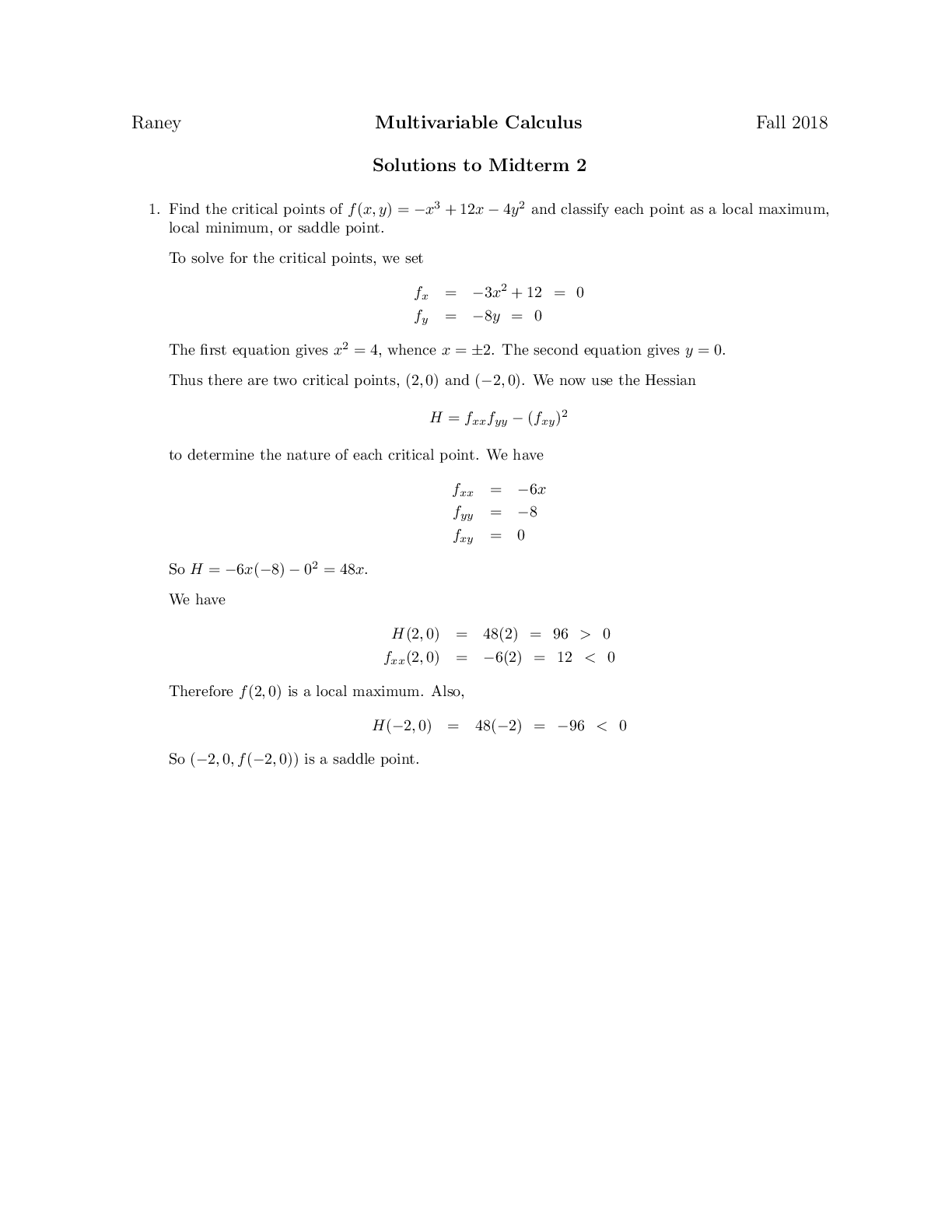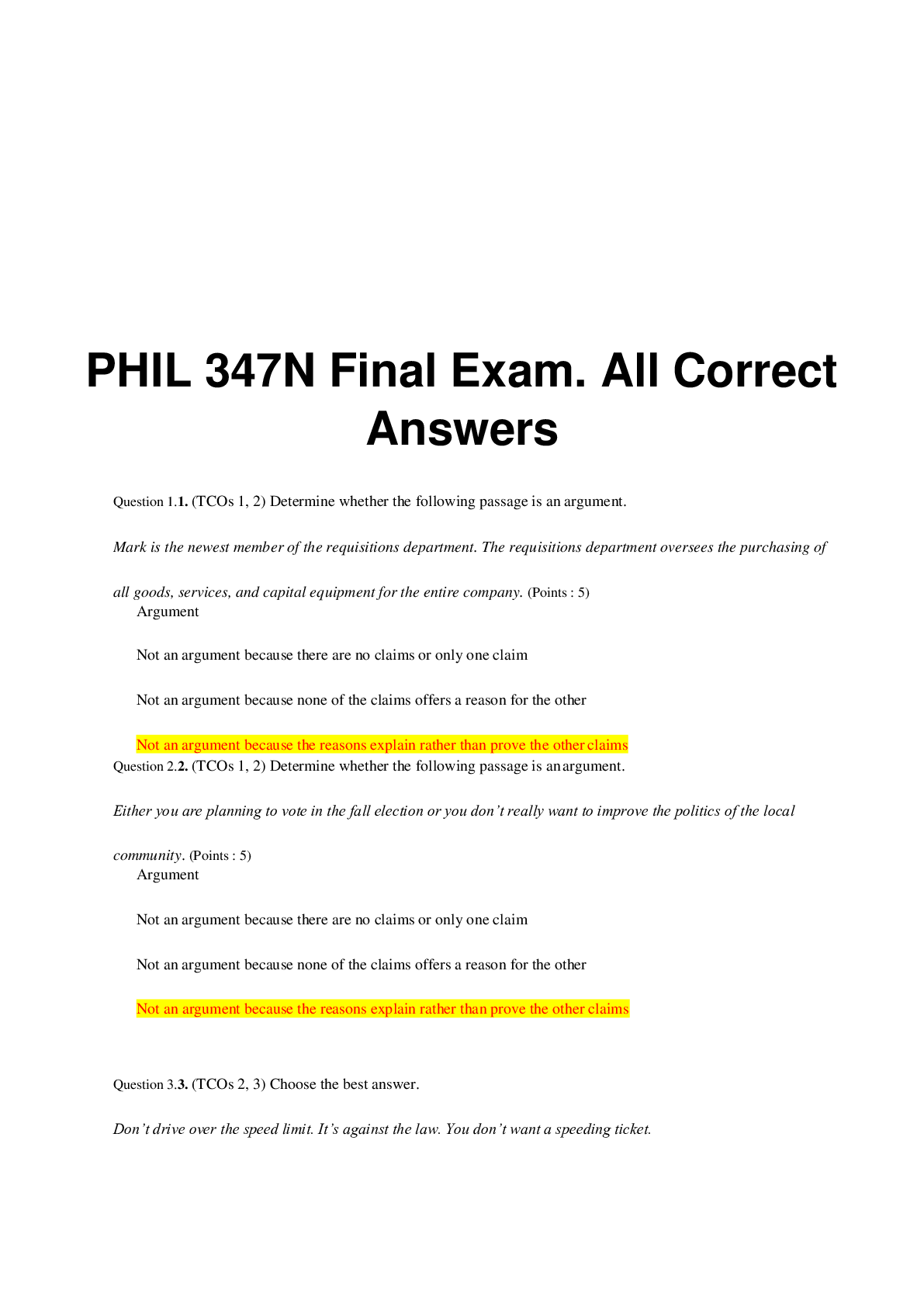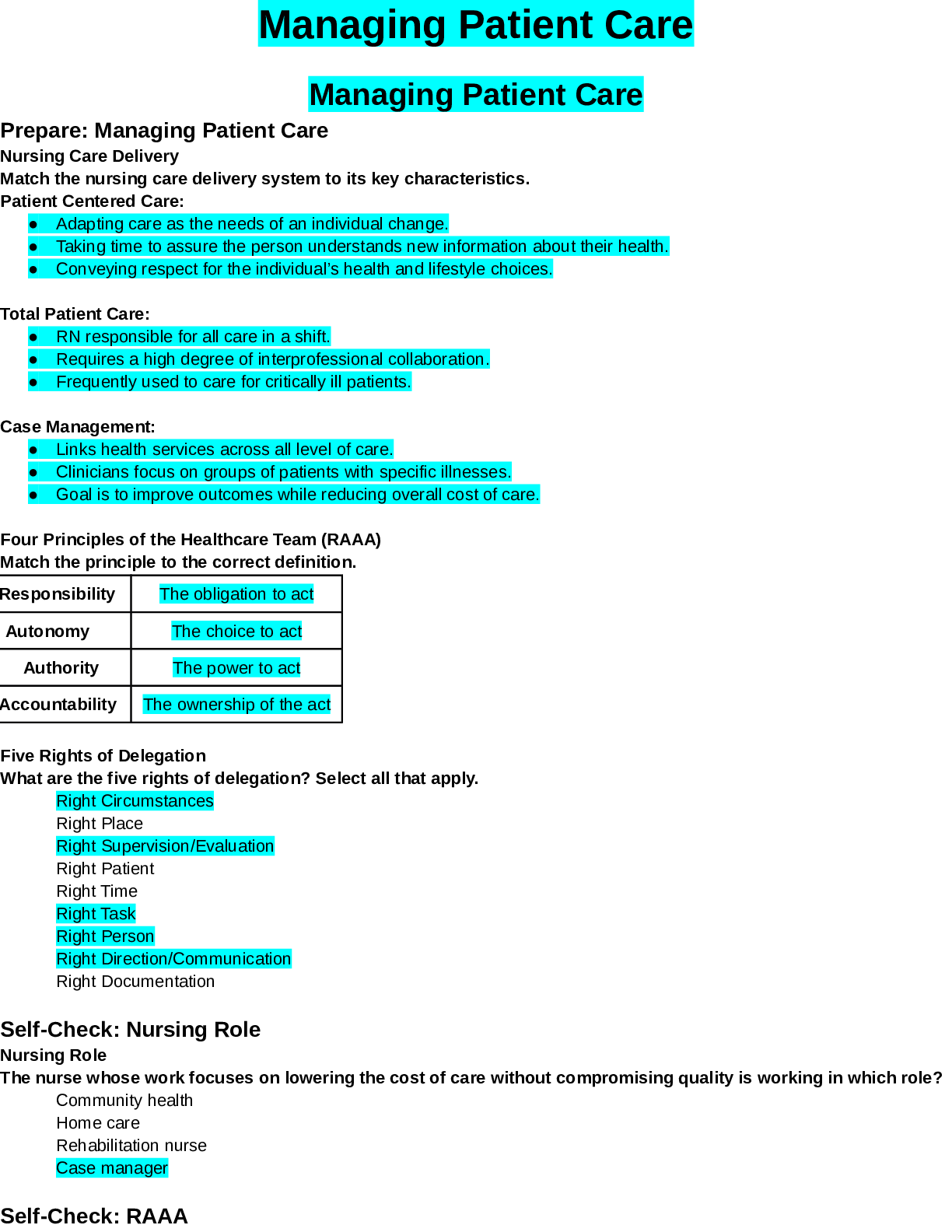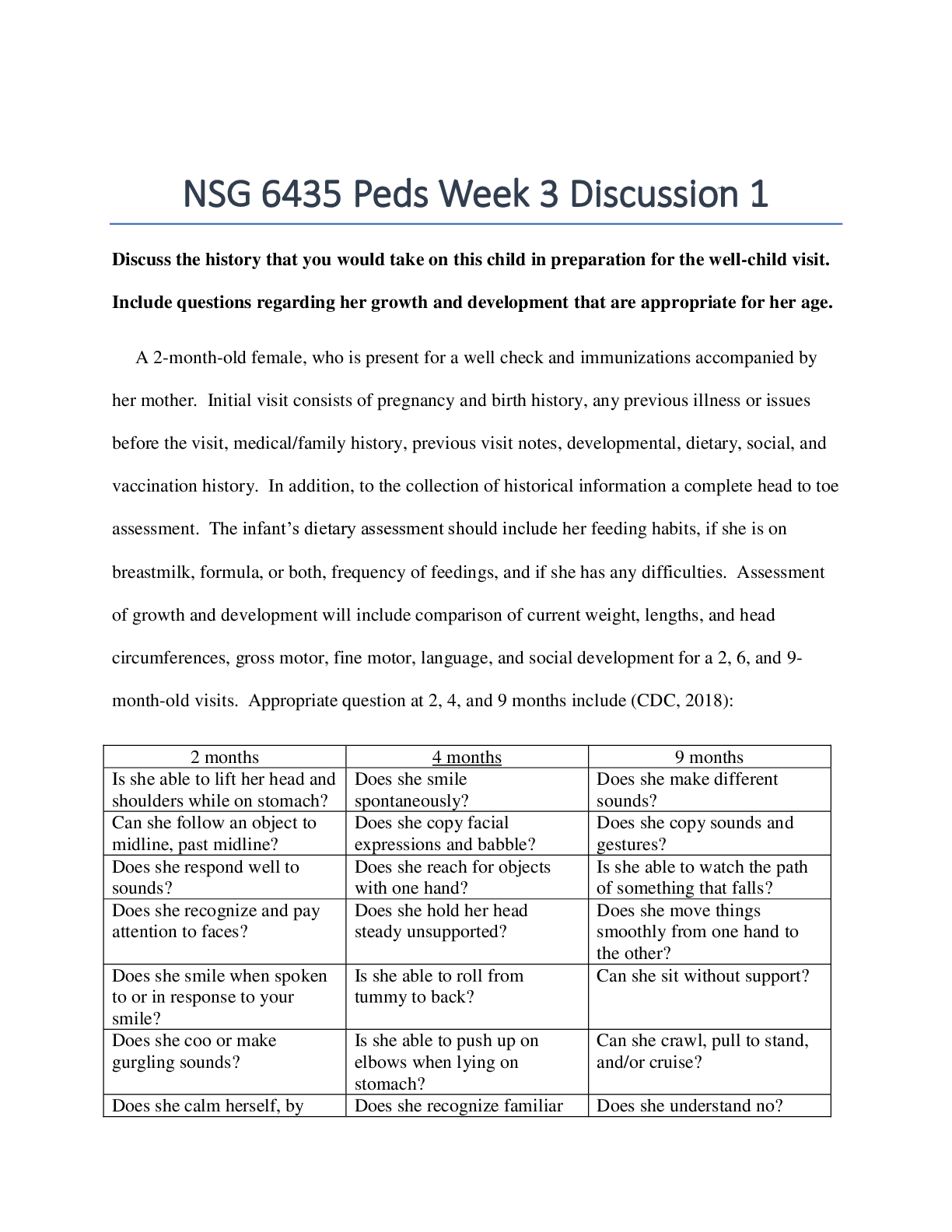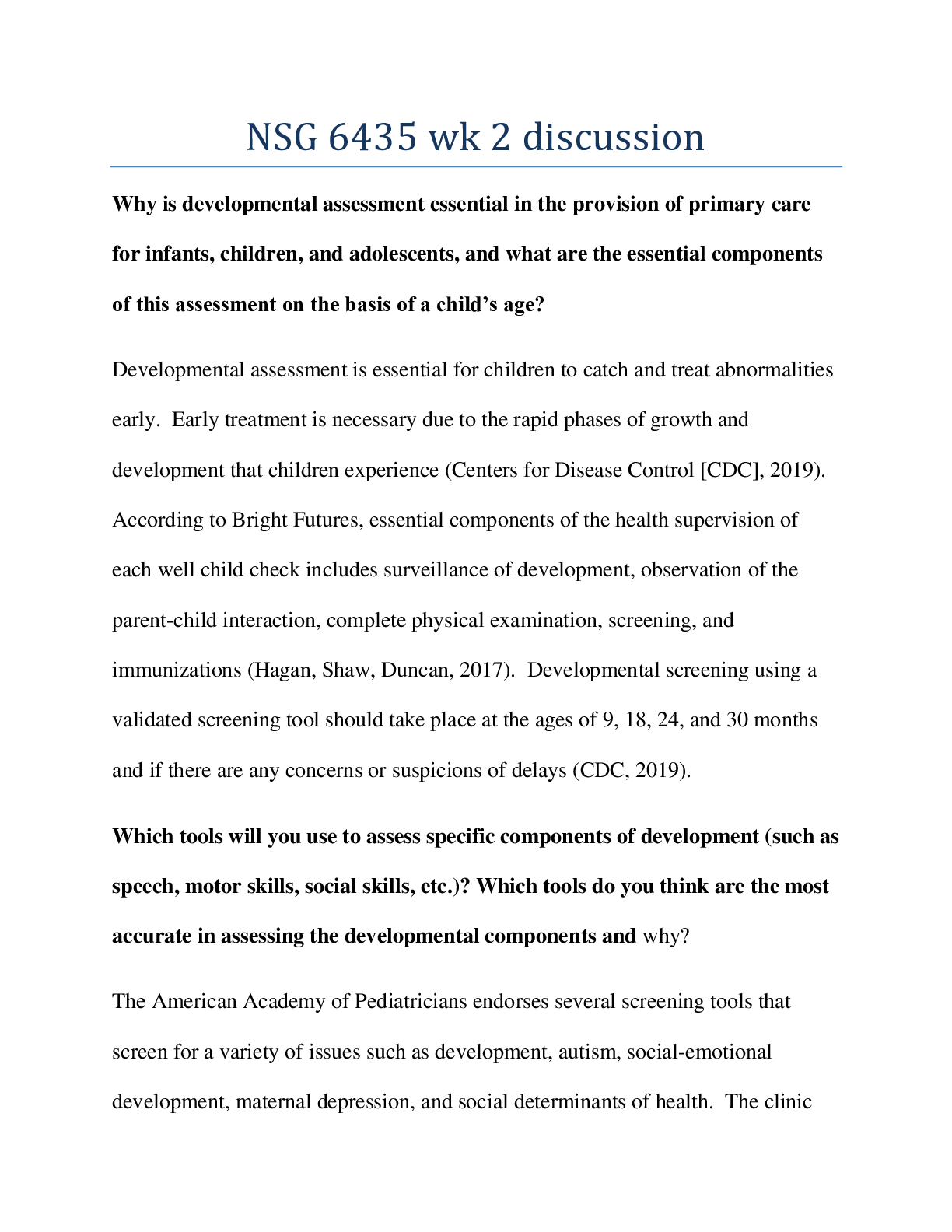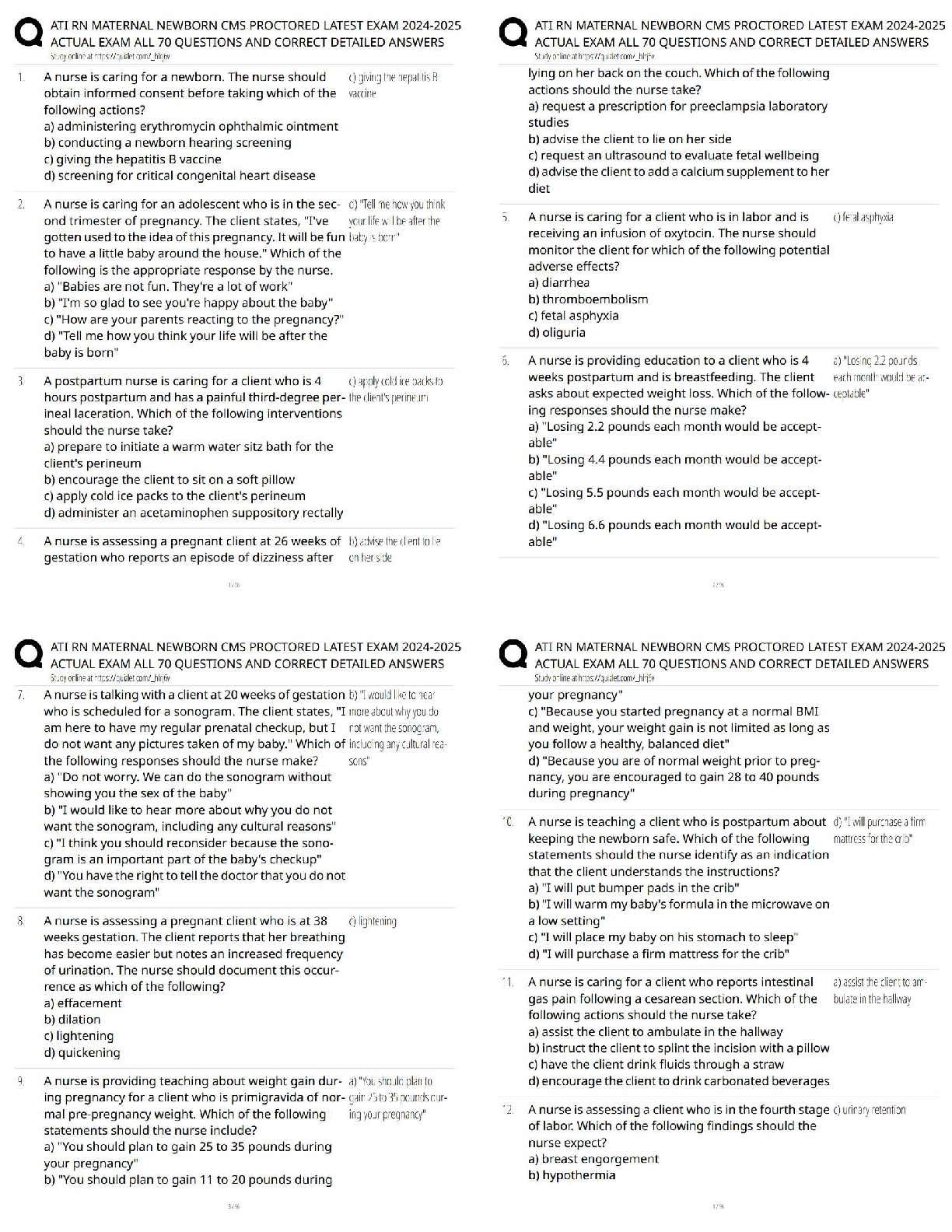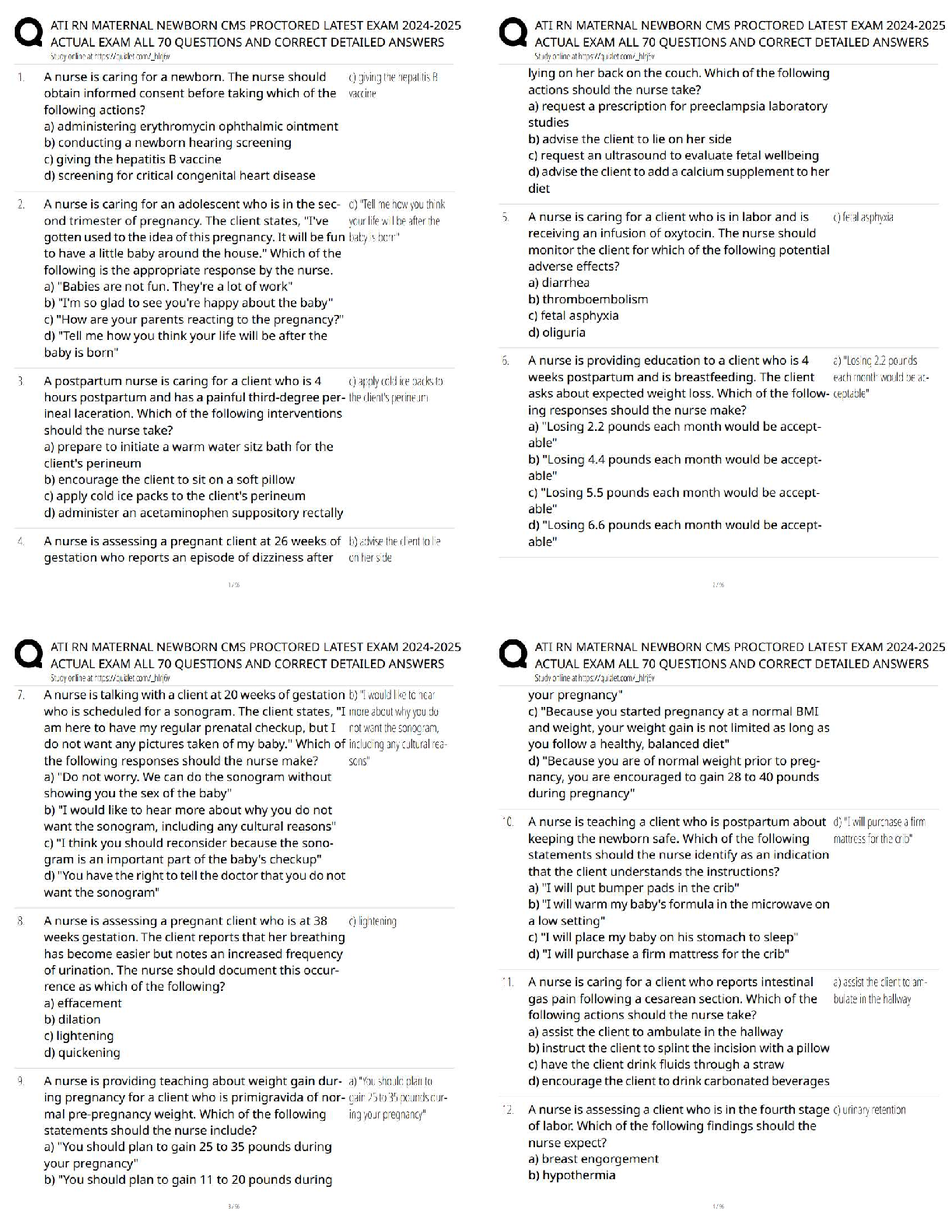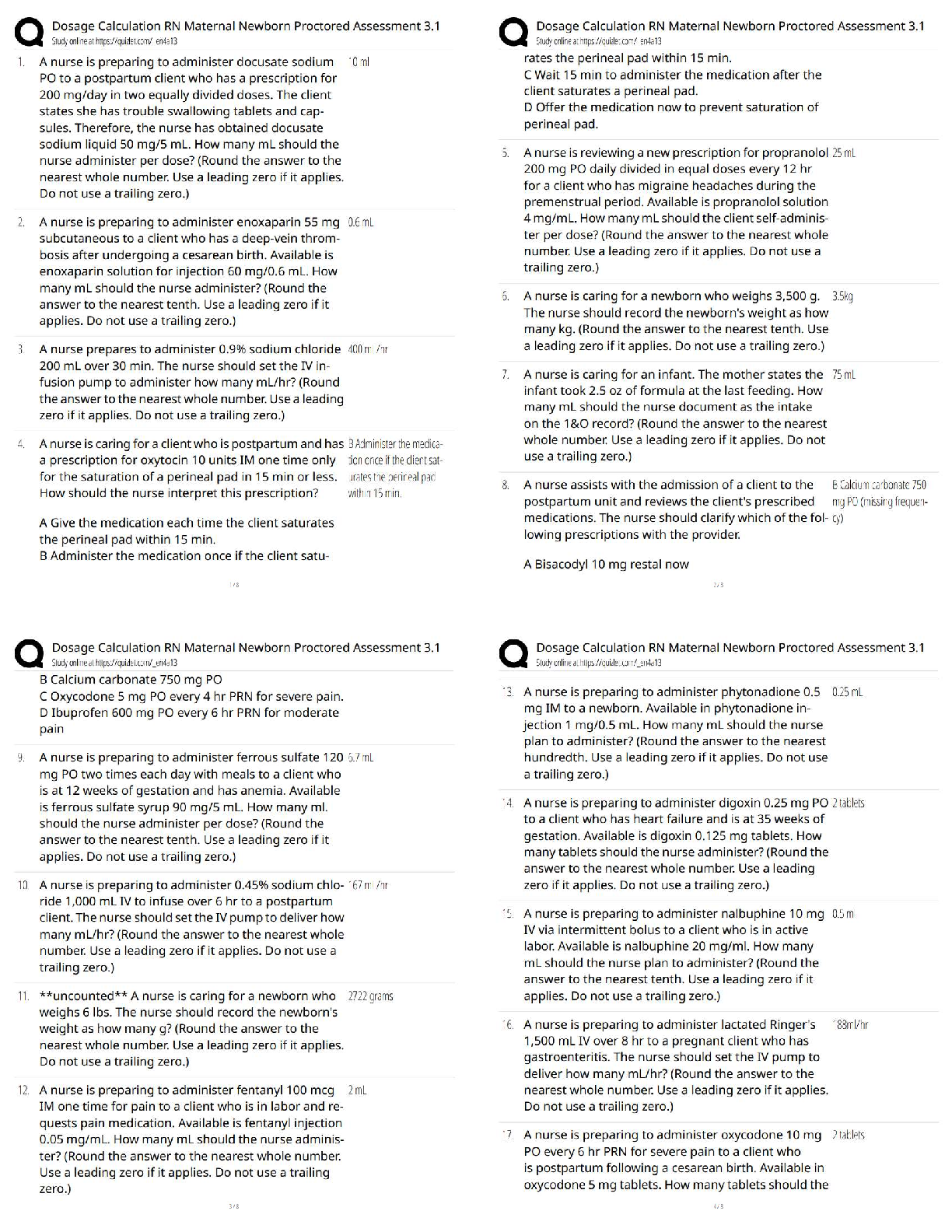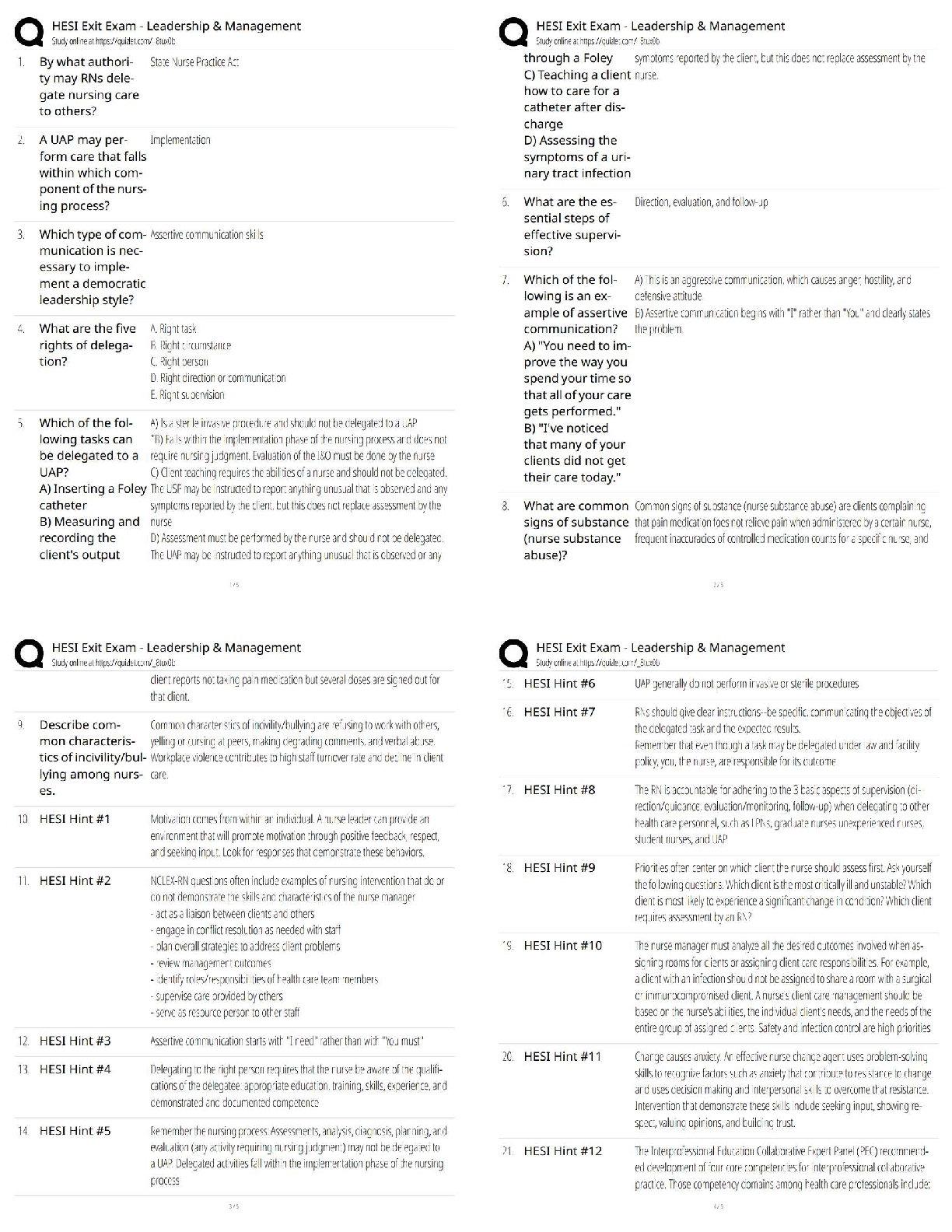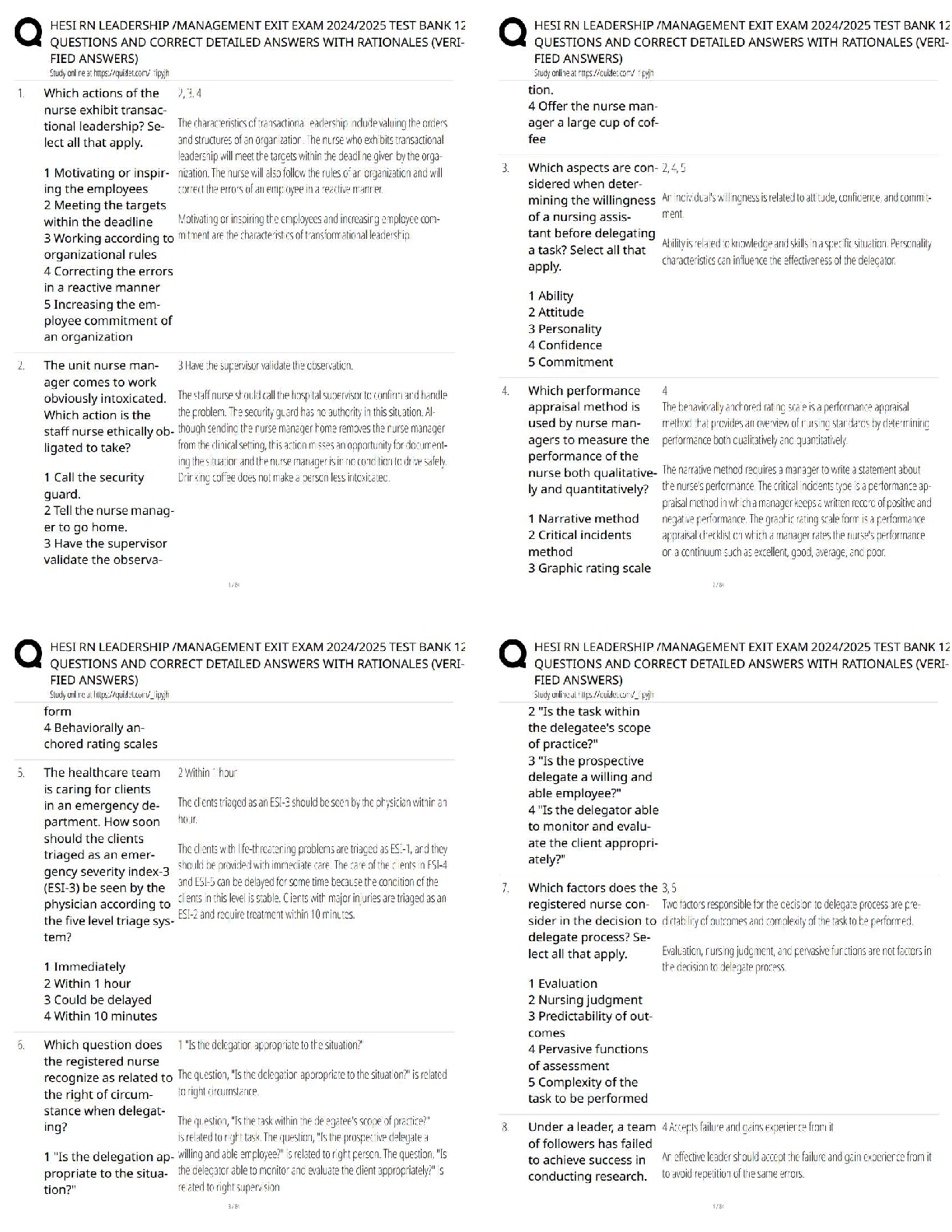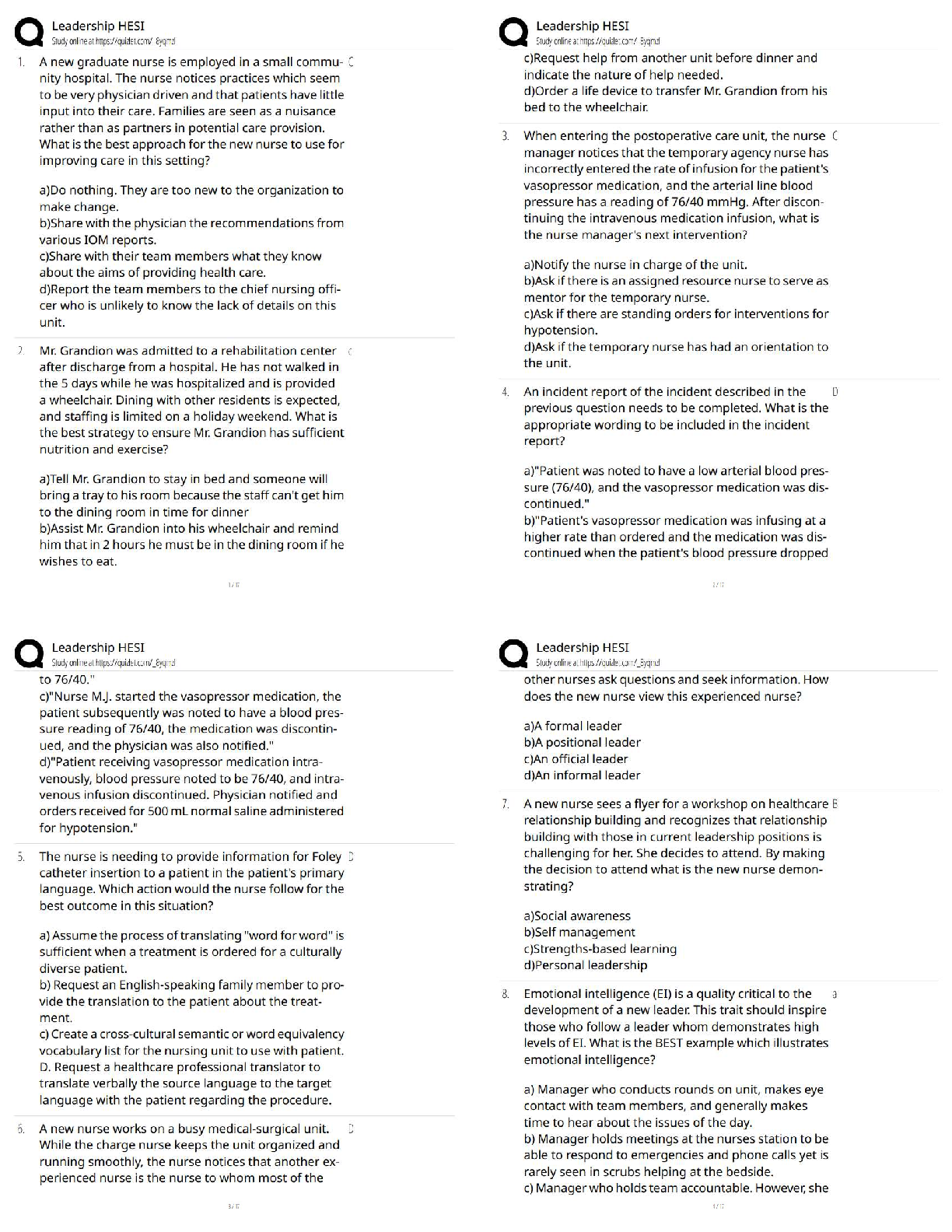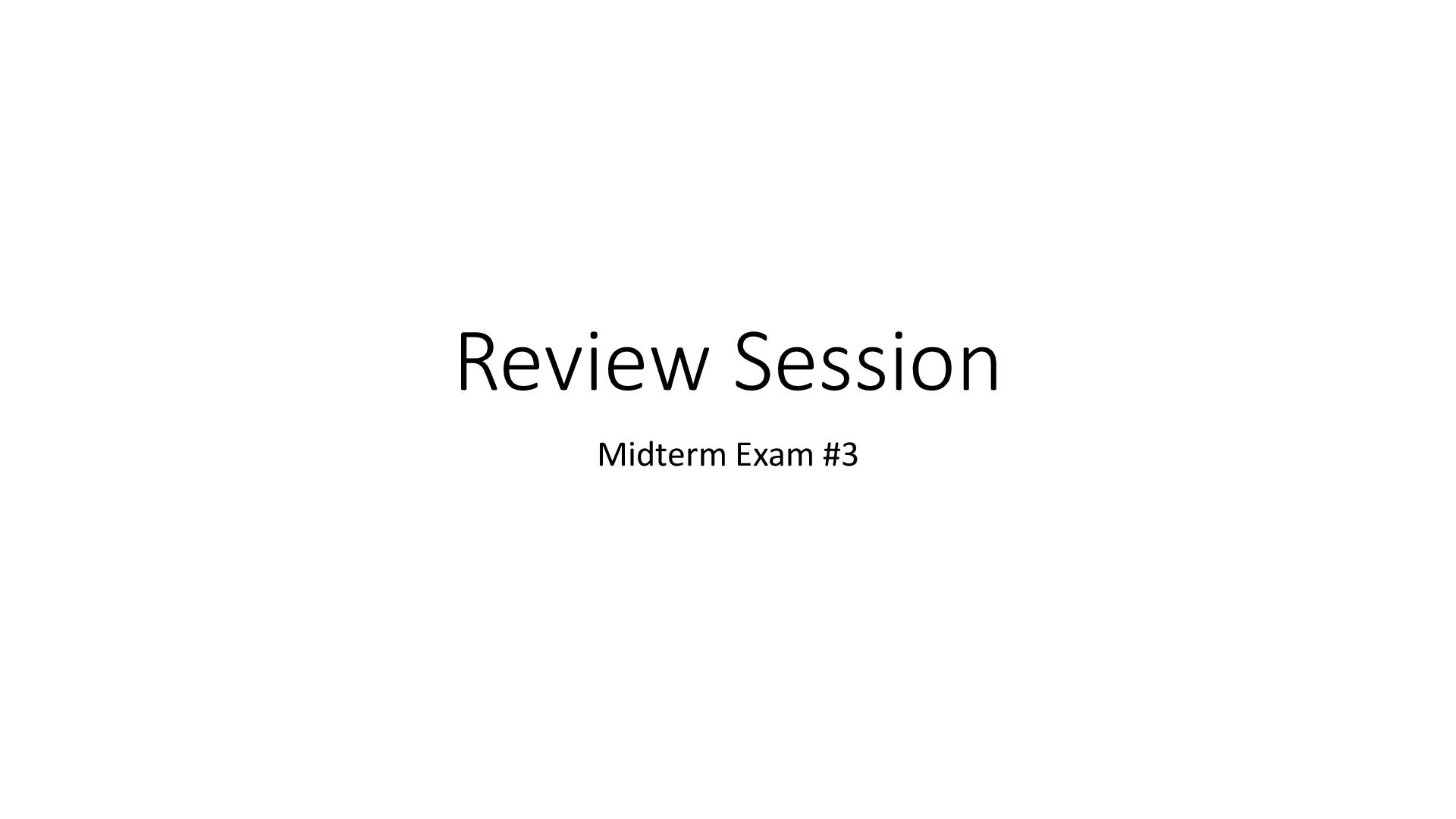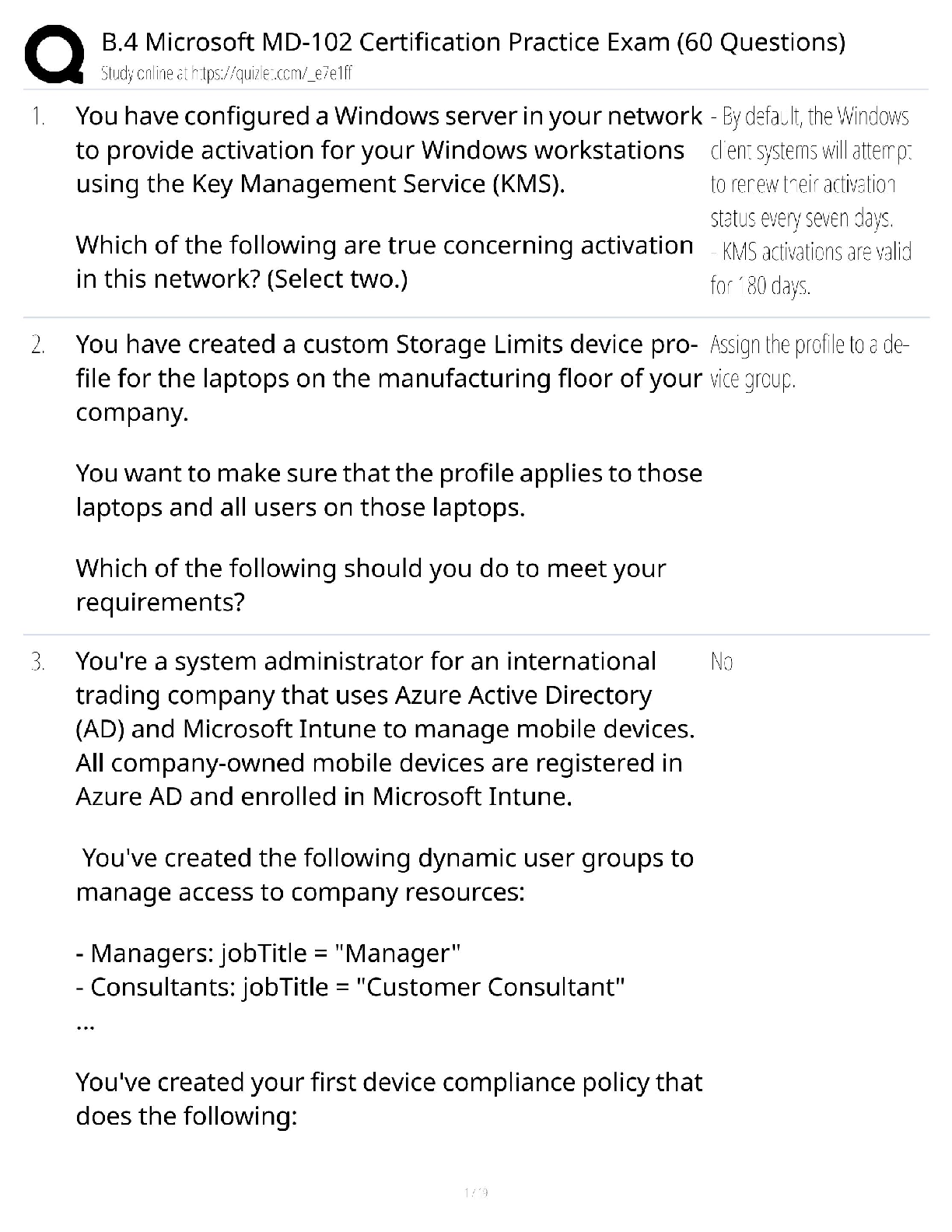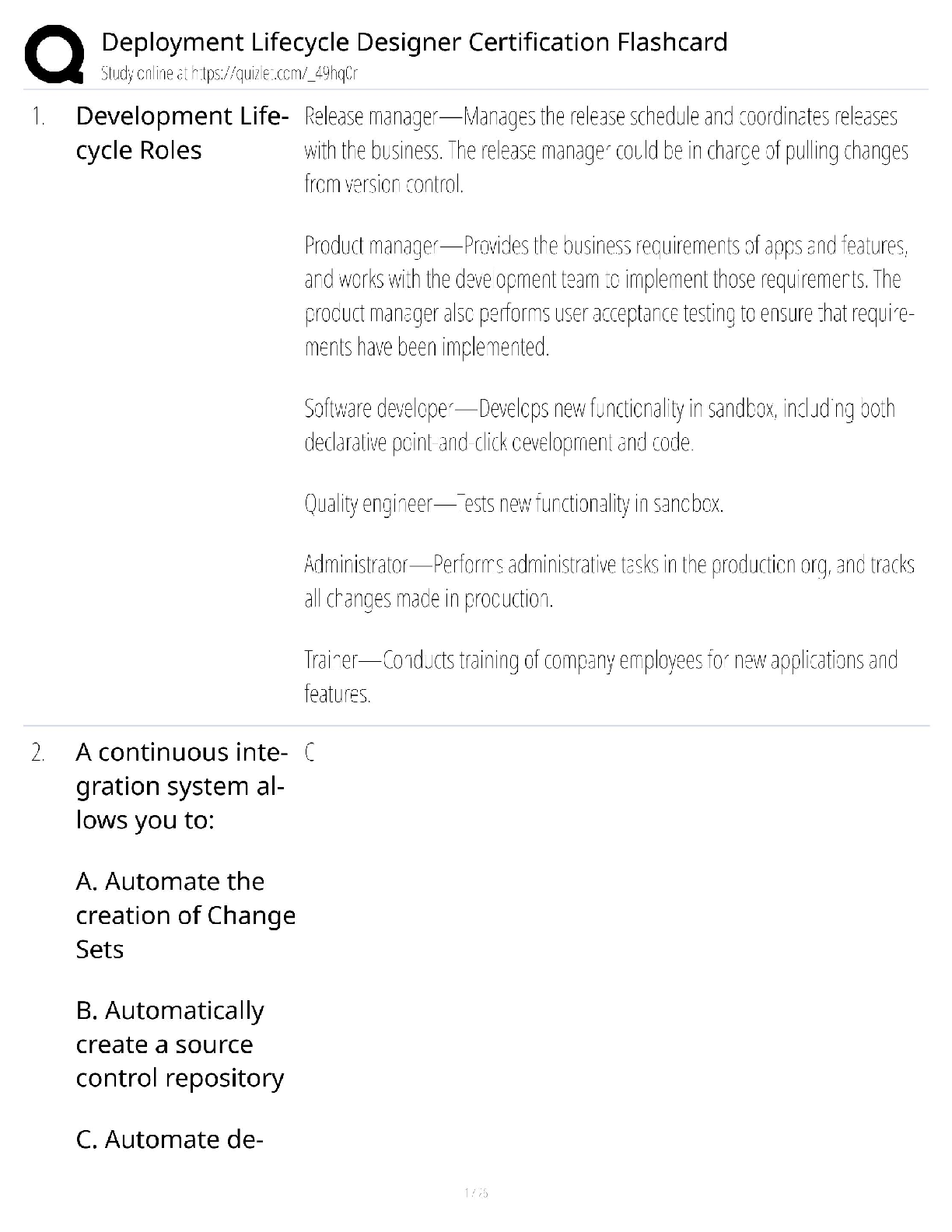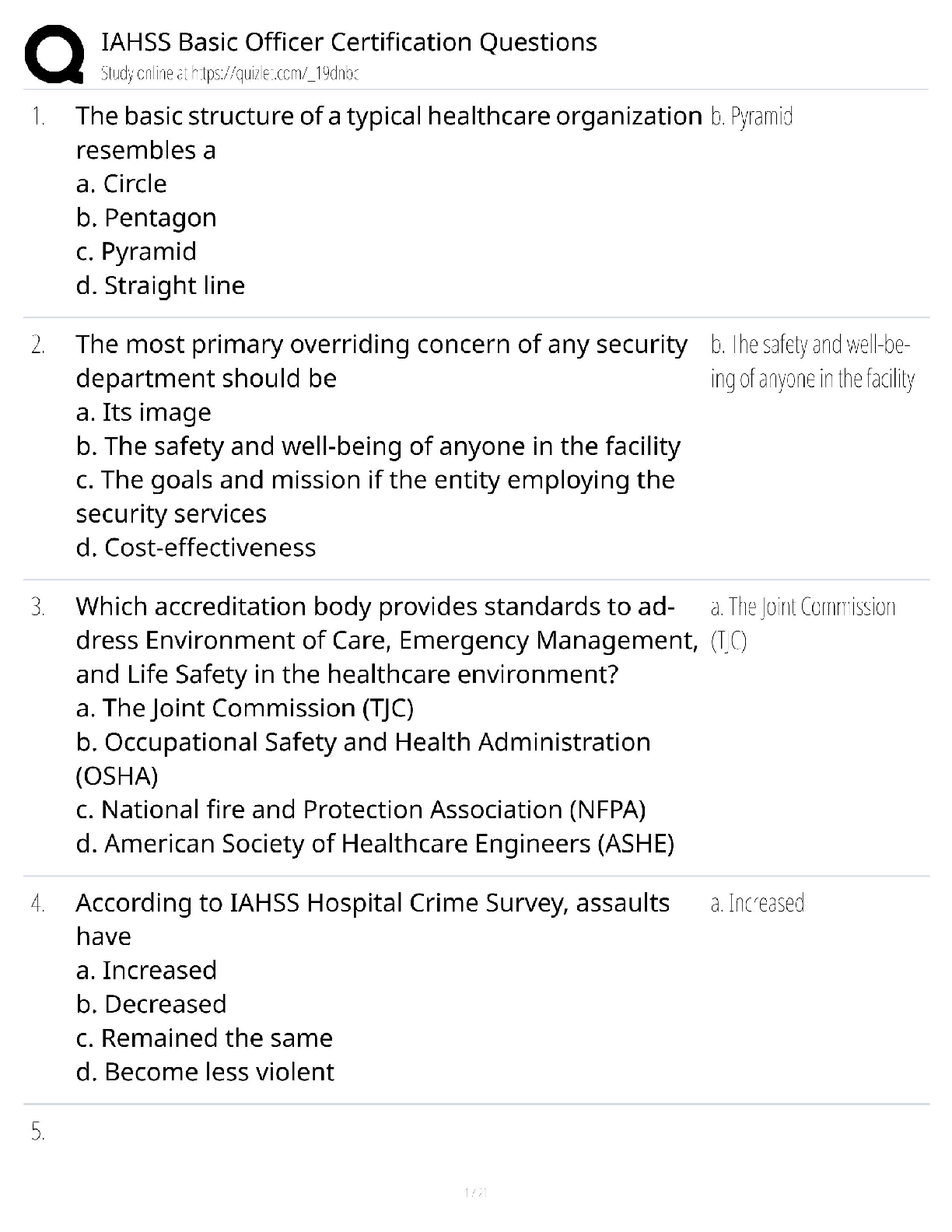FISDAP Cardiology. 75 Questions and Answers plus the Reason
Document Content and Description Below
FISDAP Cardiology. 75 Questions and Answers.
A 54 year old complains of chest tightness after raking leaves for an hour. The pain
subsided after rest and two nitroglycerin. He has had very similar
...
episodes in the past.
He is most likely experiencing?
· Angina Pectoris/ Unstable Angina/ Myocardial Infarction/ Esophageal
spasm
Reason for answer: Angina occurs when the heart's need for oxygen exceeds it's supply,
usually during periods of physical or emotional stress when the heart is working hard. (Page
637)
2. At what rate should single rescuer CPR be performed for a 17 year old female?
· 120 per min/ 90/ 80
Reason for answer: 100-120 Beats per minute. (Page 514)
3. A 40 year old patient with a history of coronary artery disease and recent
mastectomy is complaining of chest discomfort. Vitals are P 120, R 22, and BP 80/54.
You should suspect?
· CHF/ Cardiogenic Shock/ septic shock
Reason for answer: BP 80/54 is low BP(shock may occur)
4. Nitroglycerin is a medication that is typically administered?
· Sublingually/ intraosseously/ subcutaneously
Reason for answer: Beneath the tongue is very vascular, so the medication can be absorbed
quicker
5. A patient was struck by lightning. You should suspect?
· An irregular heartbeat/ peripheral nerve damage
Reason for answer: Your heart functions on electricity, the shock changes the rhythm.
6. During CPR which of the following is most important?
· Minimal interruptions during compressions
Reason for answer: providing circulation supports the bodies tissues to stay alive
7. A buildup of calcium and cholesterol form plaque inside a blood vessel which would
most likely be the cause?
· Pulmonary embolism/ CHF/ ACS/ hemorrhagic stroke
Reason for answer: Plaque, build up. (key words) (Atherosclerosis-The build-up of fats,
cholesterol, and other substances in and on the artery walls.)
8. During the Primary Assessment a 57 year old female says she has chest pain and
points to her epigastric area. What should you do?
· Obtain vital signs/ Admin Nitro/ Assess breathing/ Admin oxygen
Reason for answer: The book mentions assessing patient, if they worsen administer oxygen
9. What is the cause of heart failure?
· Inadequate ejection of blood from the ventricles/ fluid in lungs/ poor gas
exchange in alveoli/ backup of fluid in lower extremities
10. A cardiac arrest patient has been down for 6 minutes without care. What should you
do?
· Start compressions/ attach AED/ Insert opa and ventilate
Reason for answer: Immediately begin CPR. Get oxygen circulated.
11. An adult patient is in cardiac arrest with bystander CPR in progress. What should
you do?
· Continue CPR while partner does AED
Reason for answer: Never interrupt CPR( 10 seconds max). Uncertain how long bystander has
been doing CPR.
12. If the heart lacks the power to pump blood through the circulatory system, it is known
as?
· Cardiogenic shock/ Distributive/ hypovolemic shock
Reason for answer: circulatory system( key word); Pump failure
13. A 67 year old male has significant shortness of breath, chest pain, and nausea. He is
ashen and clammy. Vitals are BP 90/60, P 148, and R 34. You should?
· Place supine position/ place in position of comfort/ admin Nitro/ admin
albuterol
Reason for answer:
Place in Supine Position. Patient is borderline shock with BP of 90/60 and Respiratory rate is
34.
14. A child is in cardiac arrest with unknown down time. What should you do?
· Perform CPR while attaching AED
Reason for answer: key is unknown time.
15. When do coronary arteries fill with blood?
· Diastolic/ systolic/ exhalation/ inhalation
Reason for answer: “Die” means diastolic. retracts.
16. A 36 year old female with history of congenital heart defects is slow to respond. She
is pale, cool, and clammy. Vitals are BP 68/30, P 128, and R 26. What should you
suspect?
· CHF/ Syncopal episode/ angina/ cardiogenic shock
Reason for answer:
17. A 73 year old female has chest pain and shortness of breath with bilateral crackles.
Vitals are 80/40, P 112, and R 22. What is the most likely cause?
· Pneumonia/ cardiogenic shock/ hypovolemic shock/ unstable angina
Reason for answer: Low blood pressure usually is cardiogenic shock.
[Show More]
Last updated: 3 years ago
Preview 1 out of 9 pages

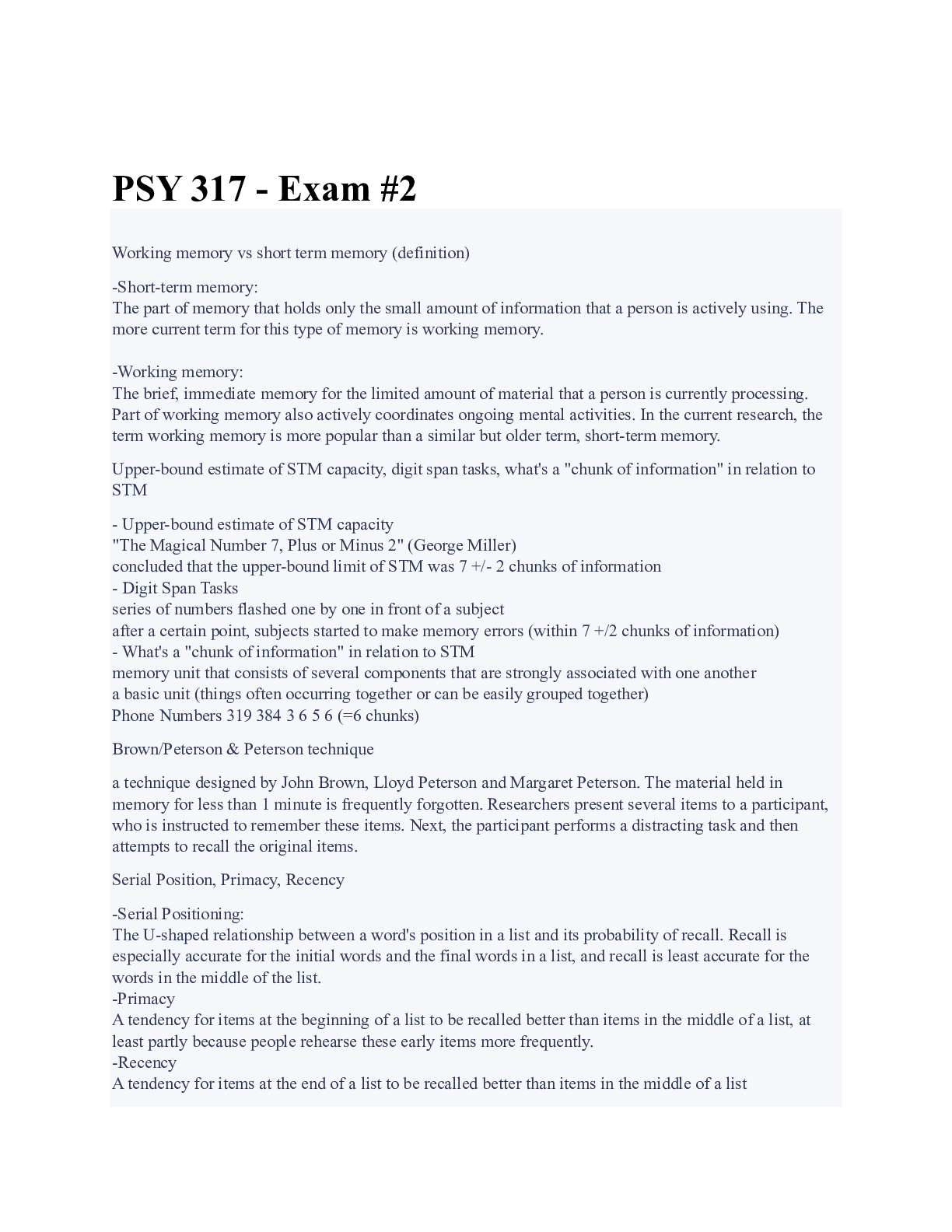


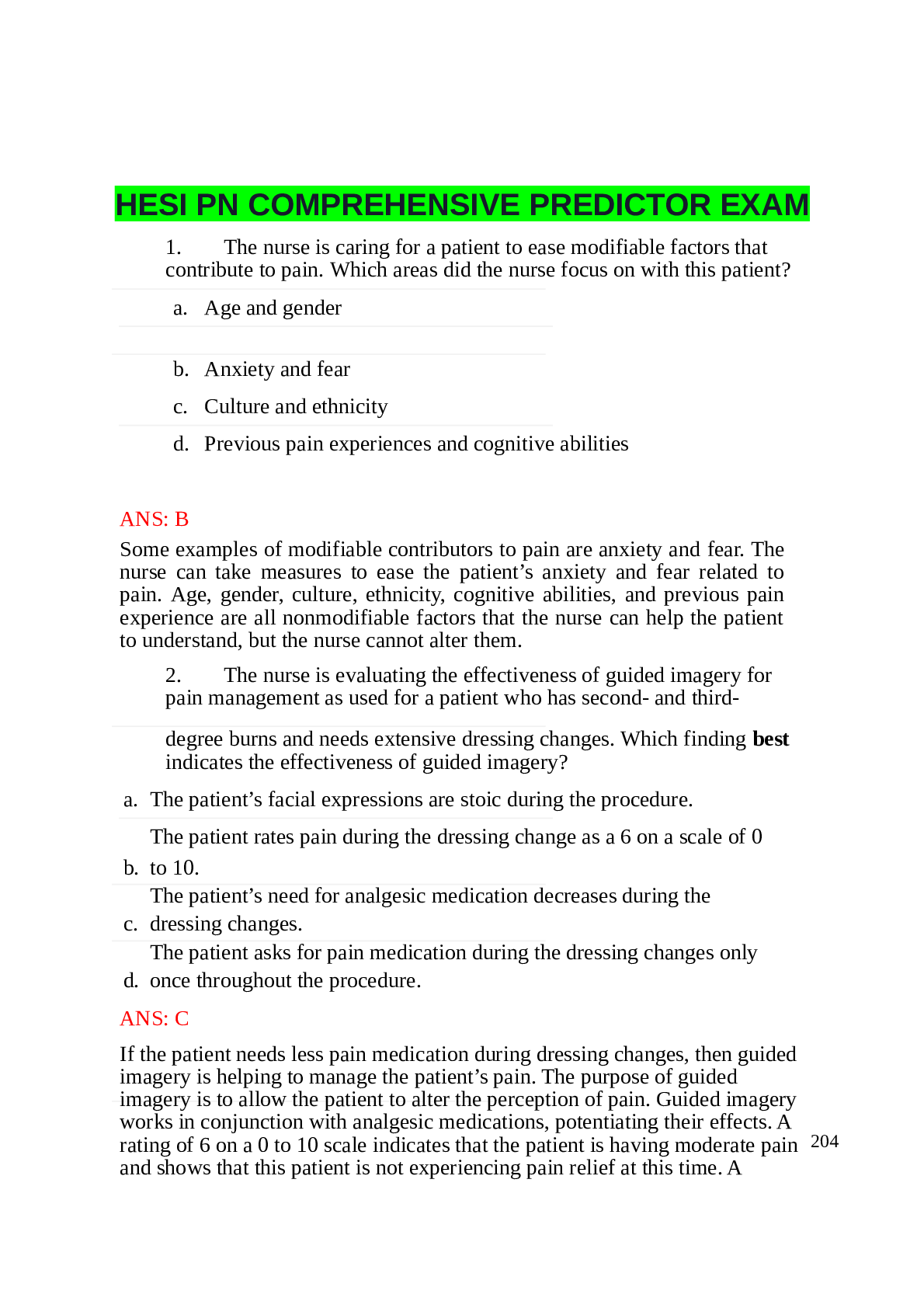
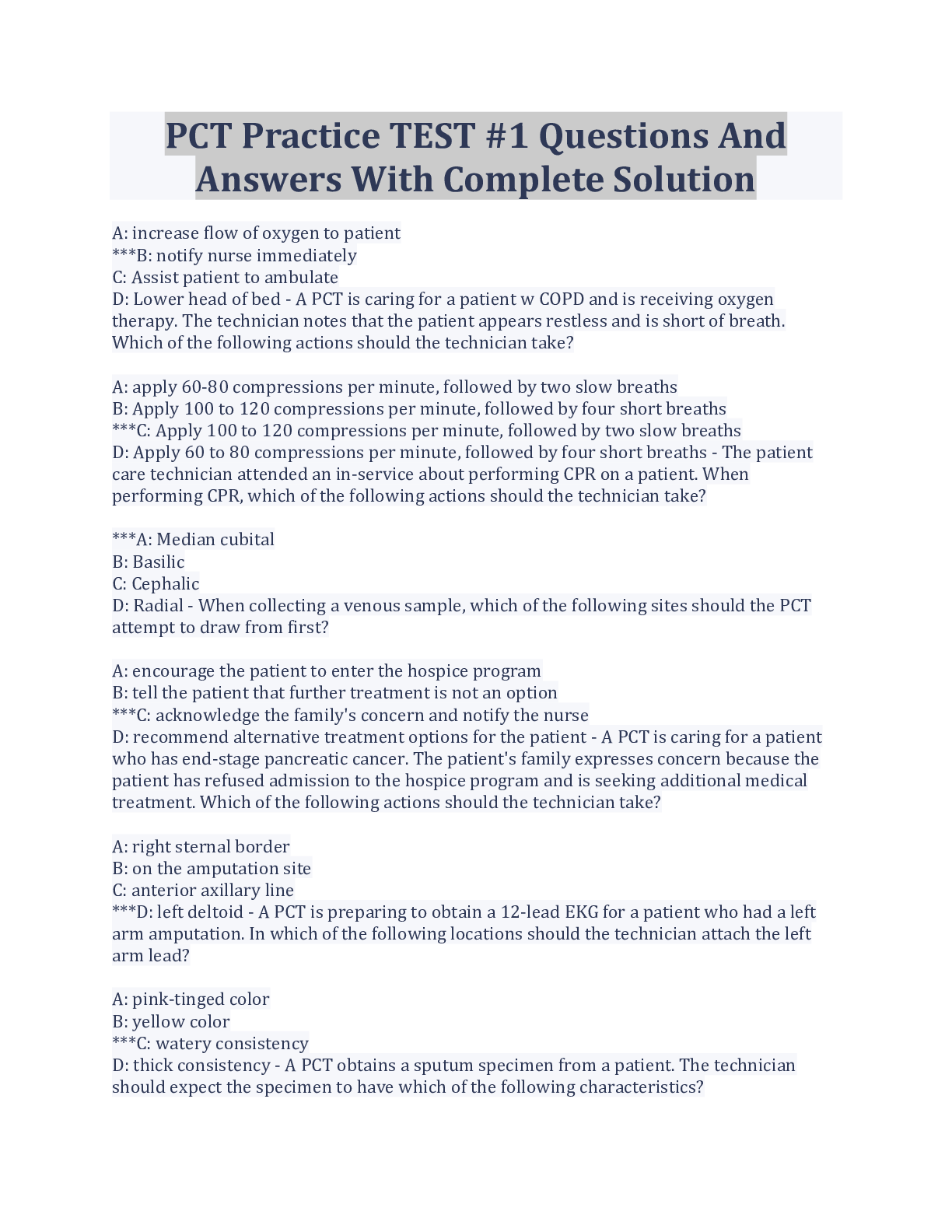
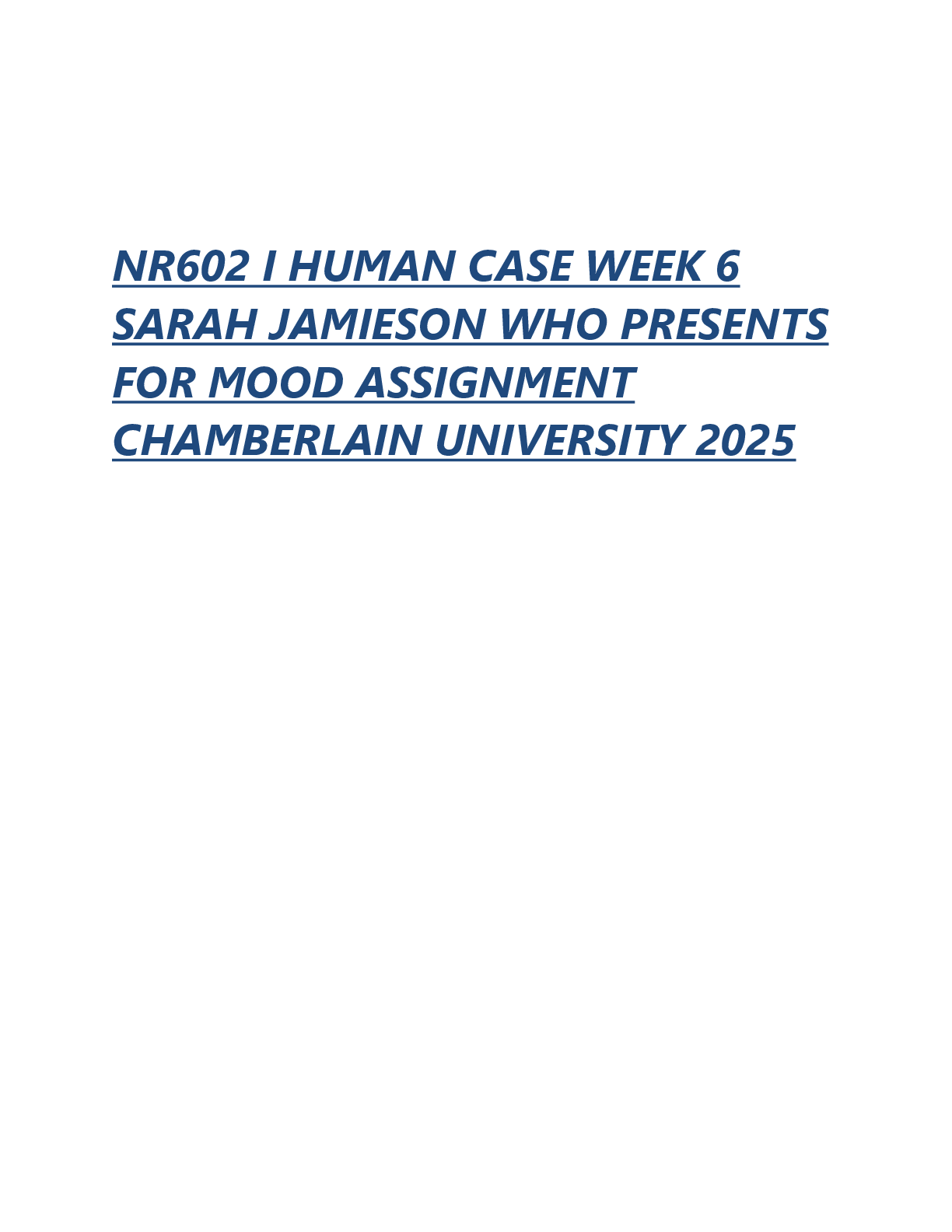
.png)
